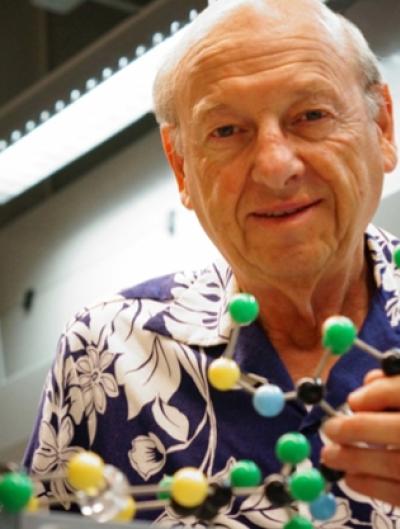Fred Wudl
Professor
Chemistry & Materials

Research
Fred Wudl is widely known for his work on organic conductors and superconductors with the discovery of the electronic conductivity of the precursor to the first organic metal and superconductor. His interest in electronically conducting polymers resulted in the discovery of the first transparent organic conductor and the first self-doped polymers. Currently, he performs research on plastic solar cells with the goal of developing new materials to improve the efficiency of the solar cells within the concepts developed at UCSB over a decade ago, as well as employing possible new concepts. Wudl is also researching the design and synthesis of organic molecules and polymers for applications in organic light emitting diodes (LEDs). Additional research interests include the optical and electro-optical properties of processable conjugated polymers, as well as the organic chemistry of fullerenes and the design and preparation of self-mending and self-healing materials.
Affiliations
Center for Polymers & Organic Solids, Co-Director
Center for Energy Efficient Materials, Member
Mitsubishi Chemical Center for Advanced Materials, Member
Biography
After postdoctoral research at Harvard, he joined the faculty of the State University of New York at Buffalo. He then moved, first in 1972 to AT&T Bell Laboratories, and subsequently to UCSB in 1982, and then to UCLA from 1997 to 2006. In 2006, Wudl returned to UCSB where he now serves as Co-Director of the Center for Polymers and Organic Solids (CPOS) and Acting Associate Director, California NanoSystems Institute (CNSI).
Honors
2005 Chemistry research Society of India Honorary Fellow
1996 American Chemical Society Award for Chemistry of Materials
2007 Tolman Medal for Outstanding Contributions to Chemistry
1989 American Association for the Advancement of Science Fellow
Education
BS: UC Los Angeles (1964)
PhD: UC Los Angeles (1967)
Contact
3213 Elings Hall
University of California, Santa Barbara Santa Barbara, CA 93106-5080